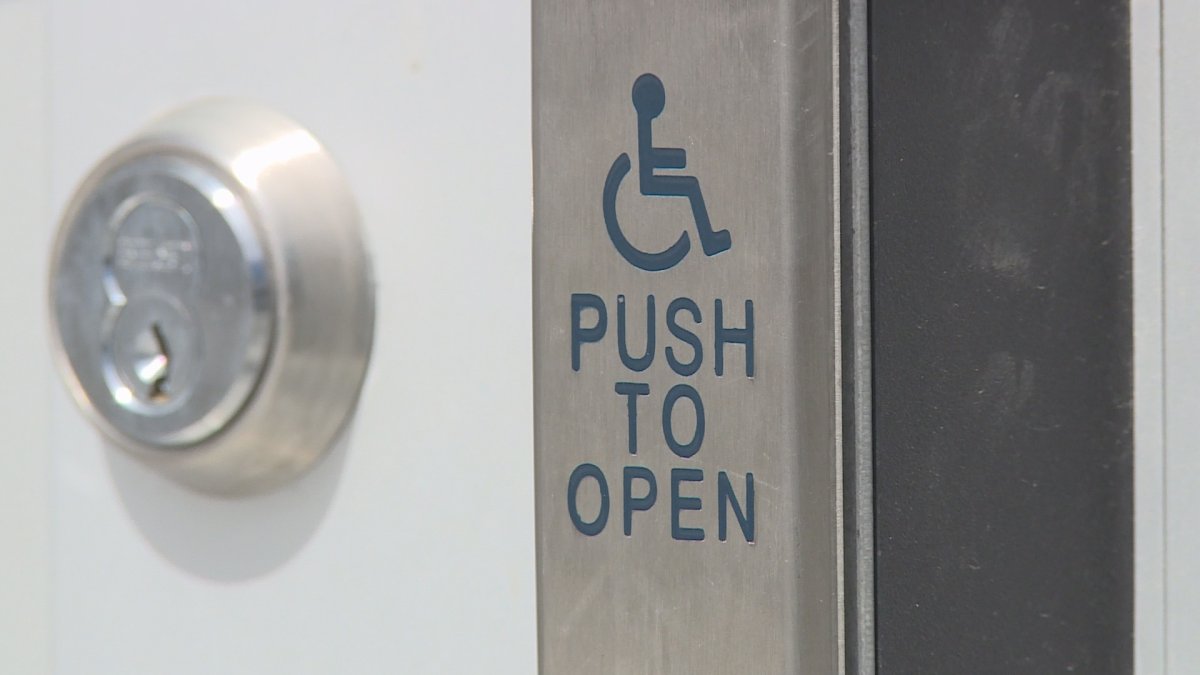The federal Conservatives have tabled a bill in the House of Commons that they say will help get more Canadians with disabilities into the workforce, arguing that right now, it can be more affordable for them to stay out of it.

The private member’s bill, tabled this afternoon by Conservative finance critic Pierre Poilievre, is unlikely to pass unless the Conservatives get the Liberals on-side.
“I have had some informal conversations with some members of the other parties, and the reaction has been very favourable,” Poilievre told reporters outside the House of Commons on Monday afternoon.
“It is intended to be a non-partisan initiative … I believe that all parties are to blame for the problems in the system.”
If it does pass, the bill (labeled The Opportunity for Workers with Disabilities Act) would amend the Federal-Provincial Fiscal Arrangements Act to ensure that Canadians with disabilities don’t lose more through taxation or the loss of benefits than they gain as a result of finding a job.
WATCH: More and more Canadians living with disabilities following strokes

Specifically, it would force Ottawa to measure the impact of every $1,000 a disabled person earns in wages against the value of their lost benefits. It would also force the federal government to adjust its tax and benefit programs so that a disabled person would always be financially better off working than not working.
READ MORE: Nova Scotia argues that supported housing for disabled is not a right
Finally, it would provide an enforcement mechanism to ensure the provinces do the same. The Canada Social Transfer, which is sent from the federal government to the provinces, would have a new condition attached: that Canadians with disabilities in all provinces should gain more income than they lose to taxes and clawbacks when they work.
“Provinces would have total liberty in how they uphold this principle,” explained background notes provided by the Conservatives on Monday.
According to Poilievre, people with disabilities often do the math and realize that higher income taxes, reduced financial support from social assistance or tax credits, the loss of extended medical coverage and new work-related expenses like transportation, clothing or childcare, actually make it prohibitively expensive to hold down a job.
“Imagine that the harder you work, the poorer you become,” he said.
According to Statistics Canada’s latest Canadian Survey on Disability, conducted in 2012, close to half (47 per cent) of 15 to 64 year-olds with disabilities in Canada (from mild to very severe) reported that they were employed. Among the same cohort without disabilities, the employment rate was 74 per cent.
Statistics Canada has also reported that in 2012, there were over 650,000 Canadians with disabilities who either worked in the past or said they were capable of working, but were not currently working. Of these, about 82,300 believed they would see a drop in their income if they found a job.
READ MORE: Immigration Canada reverses decision, grants residency for family denied over child’s disability
Poilievre’s announcement on Monday came with attached letters of support from the Canadian Association of Social Workers, several economists, and a number of associations and groups supporting Canadians with disabilities, such as the Canadian National Institute for the Blind.
In response to a request for comment from Global News, the Minister of Persons with Disabilities Kristy Duncan said Canada is committed to “ensuring greater accessibility and opportunities for Canadians with disabilities.”
“Following the largest and most accessible national consultation on disability issues ever, we look forward to introducing federal accessibility legislation this spring that will provide Canadians a better chance to succeed in their local communities and workplaces,” Duncan said in an email statement.
“We recognize the importance of employment of persons with disabilities and are proud to support organizations through a series of programs such as the Opportunities Fund, which helps persons with disabilities find and maintain employment.”
Poilievre said one of his first moves following the tabling of the bill will be to speak directly with Duncan.




Comments